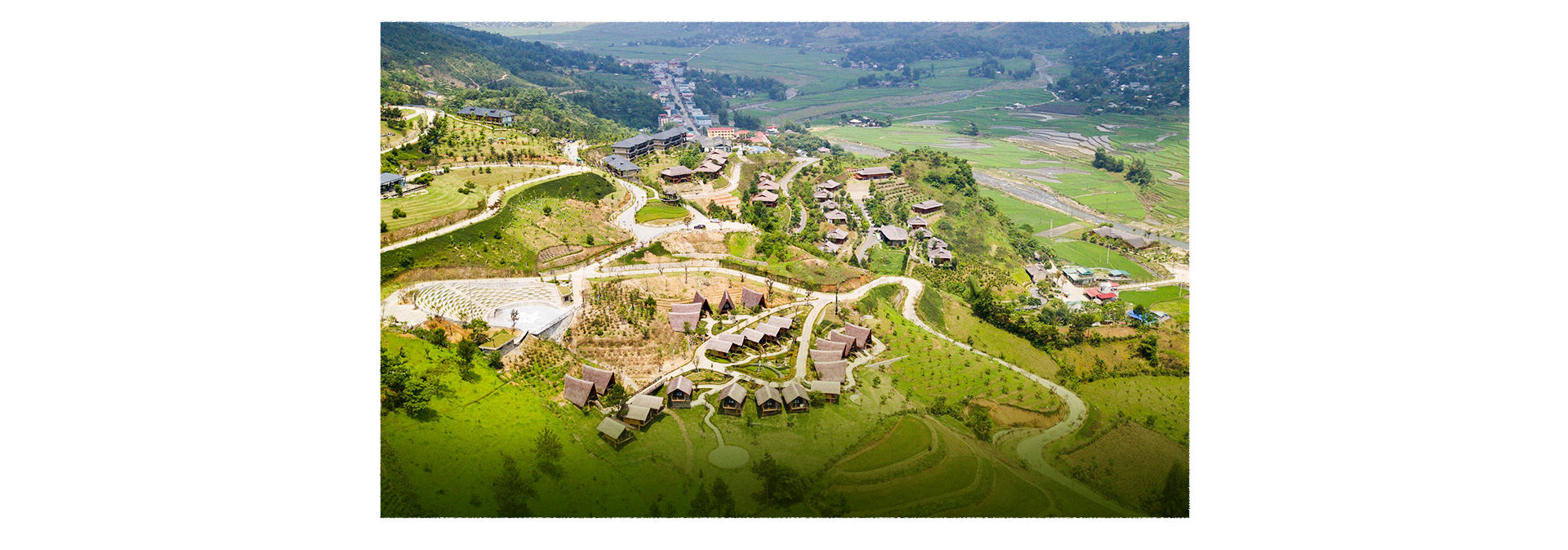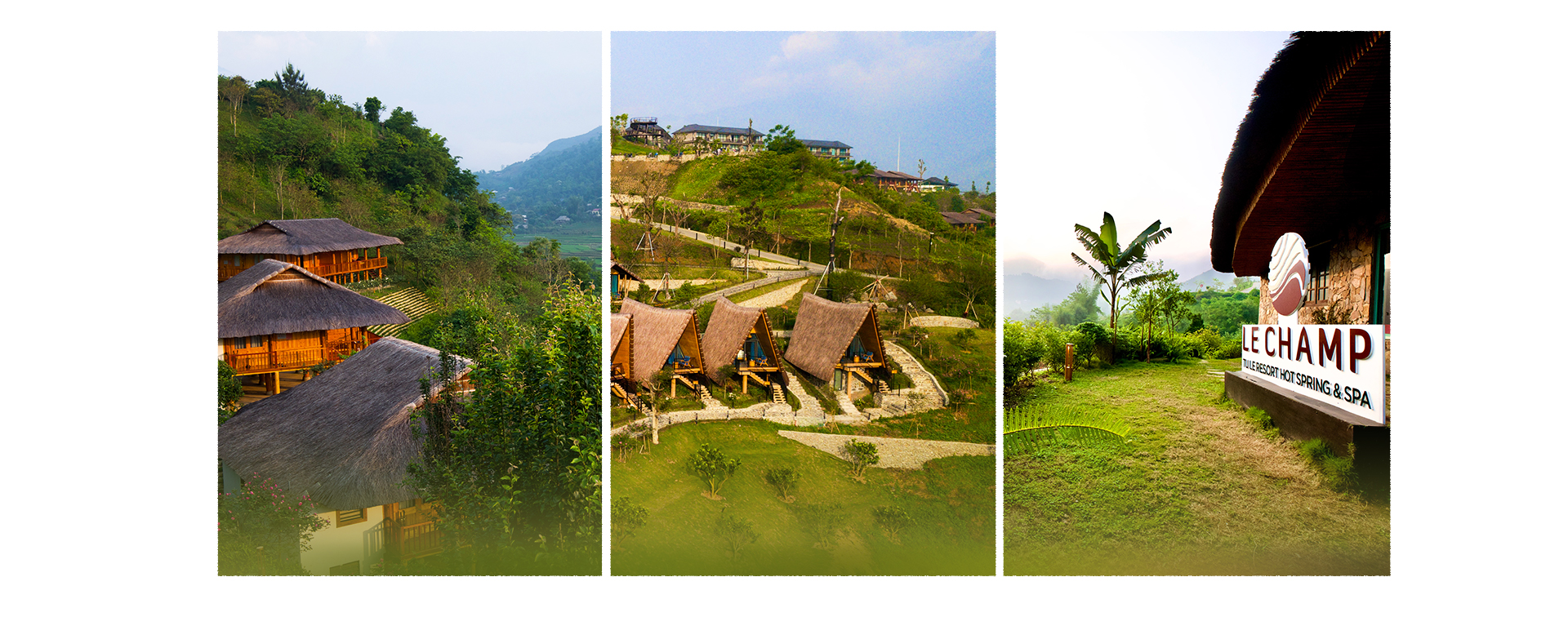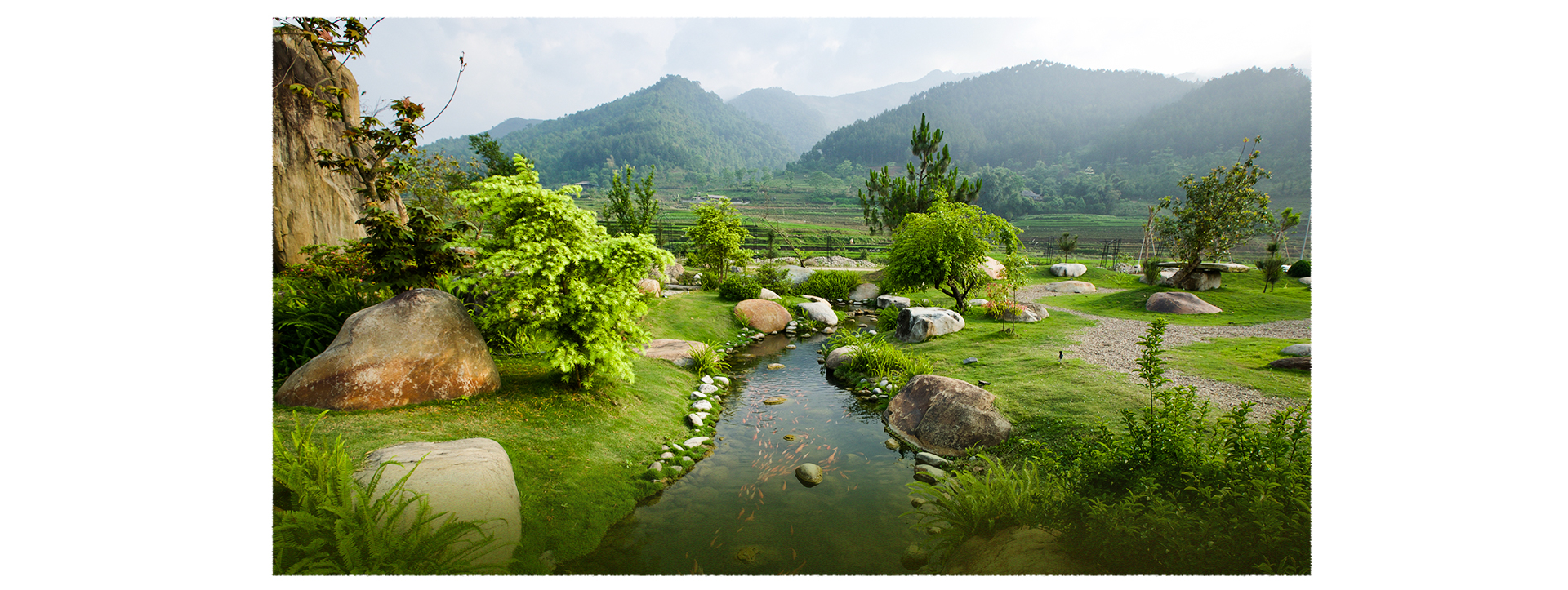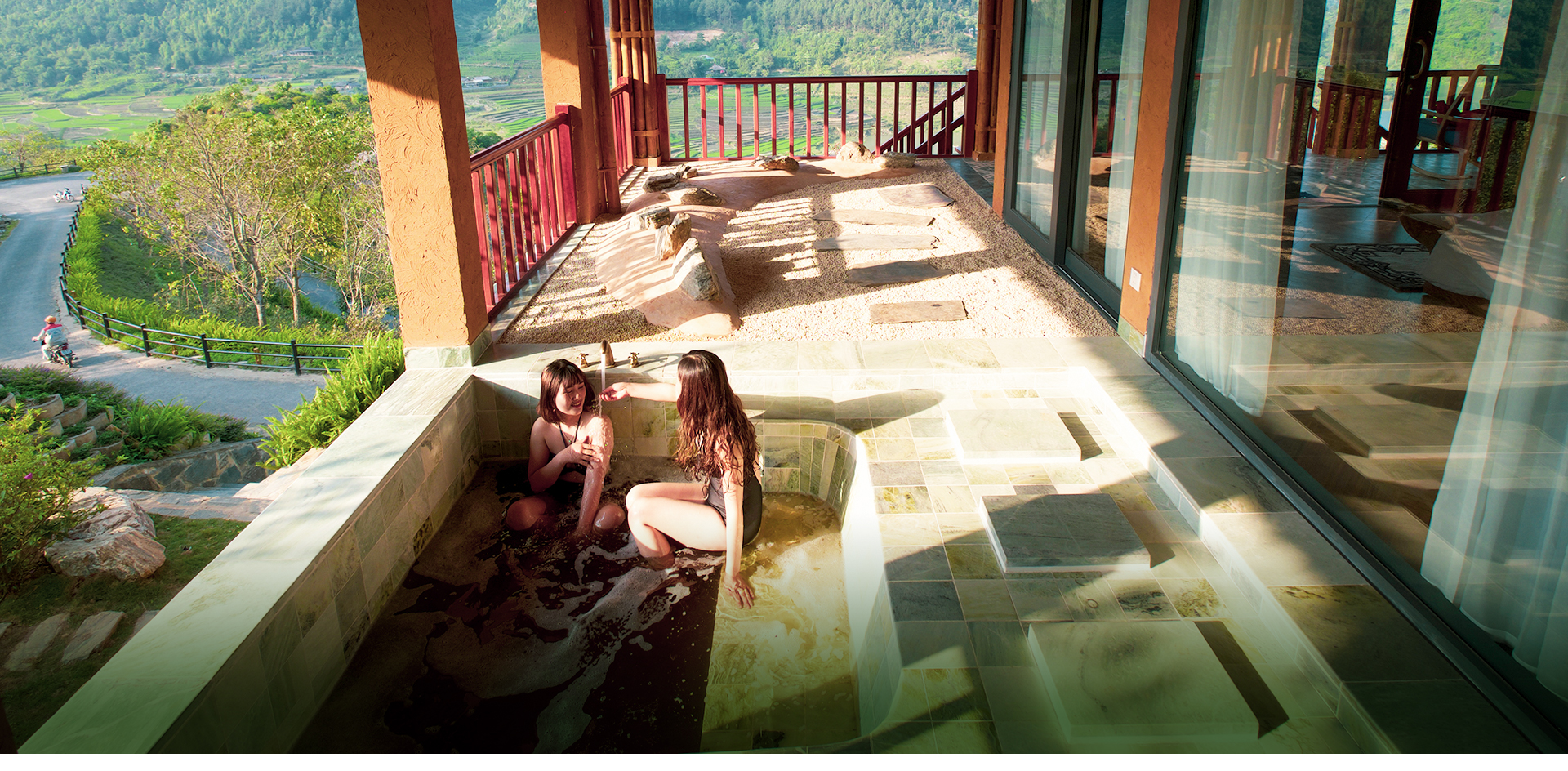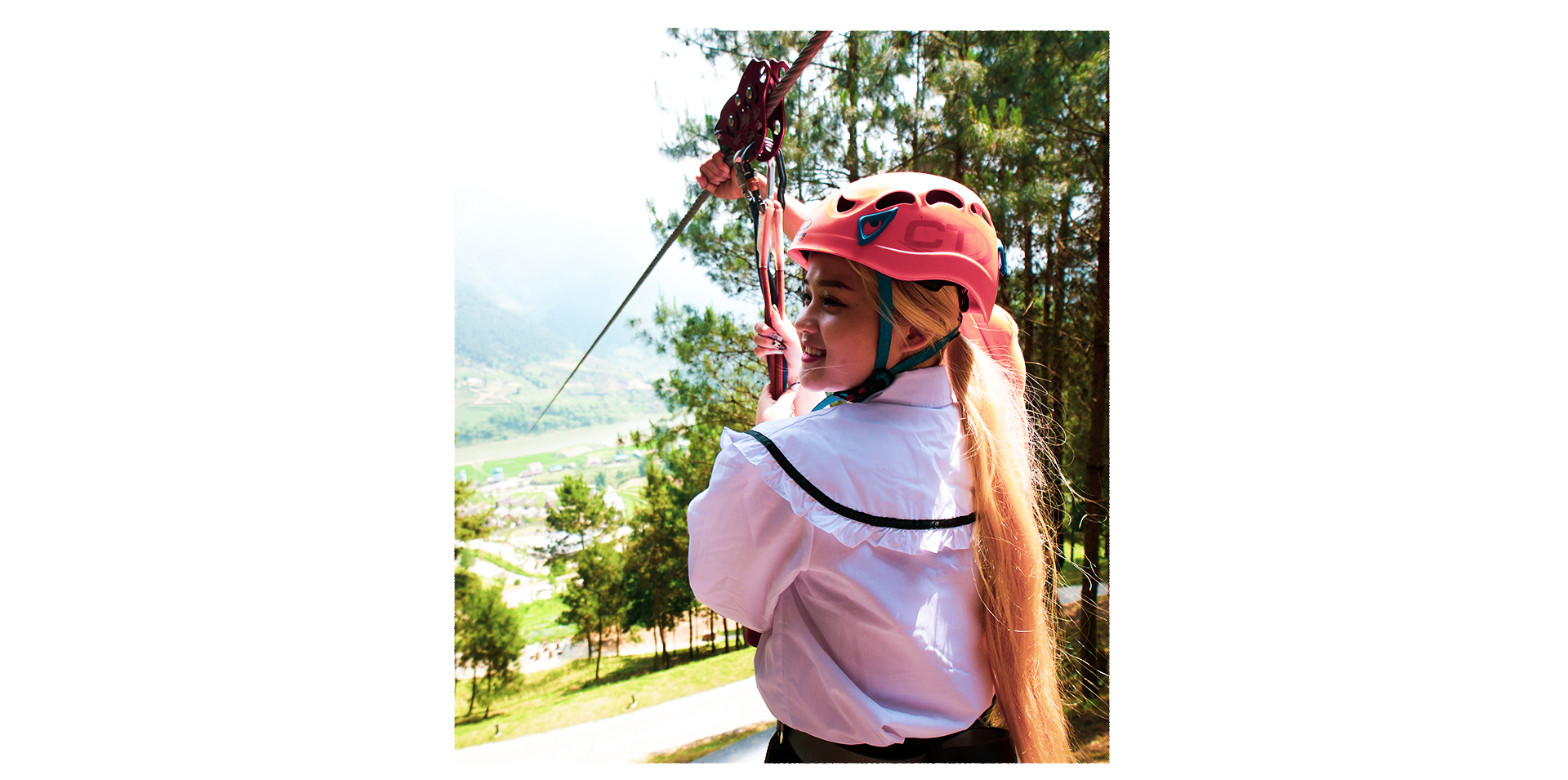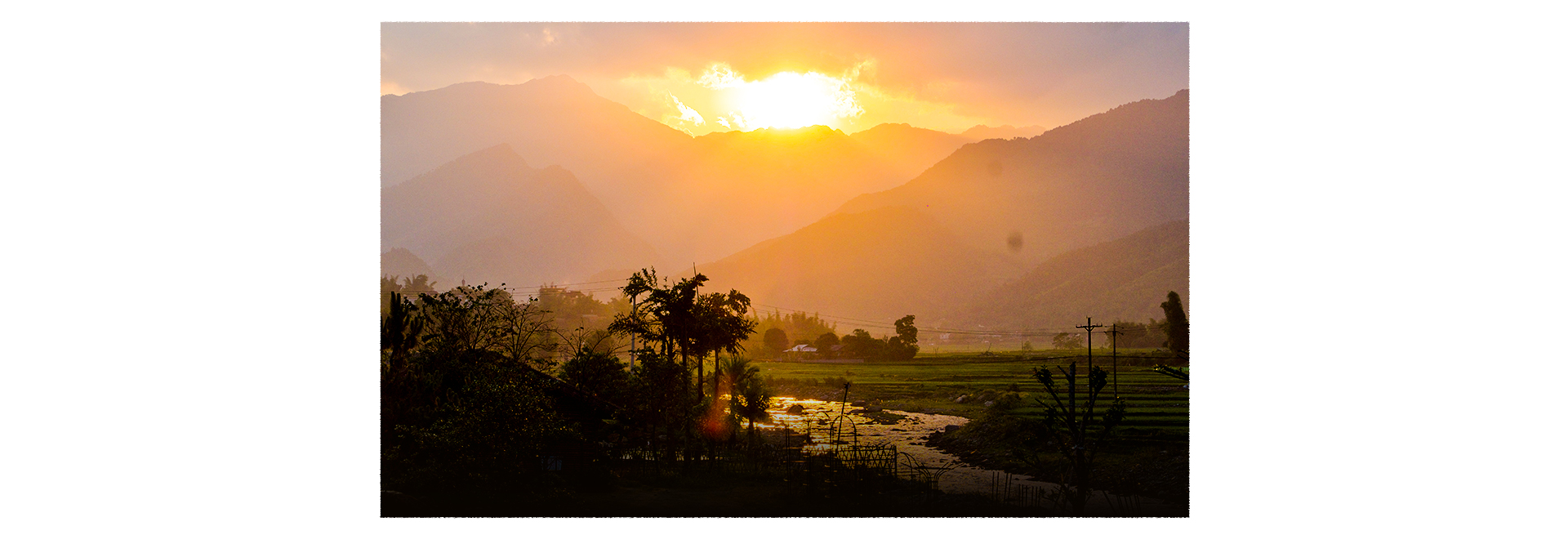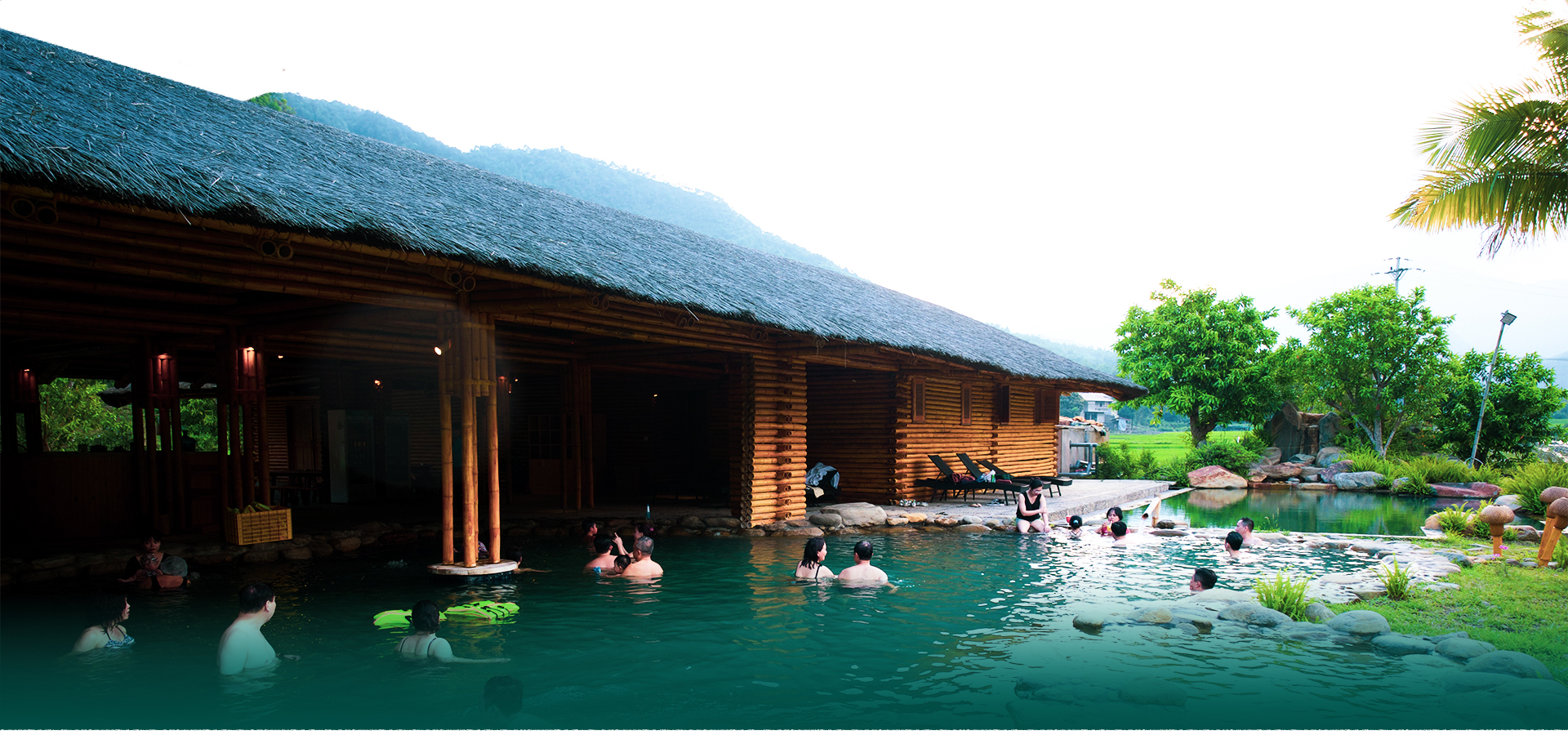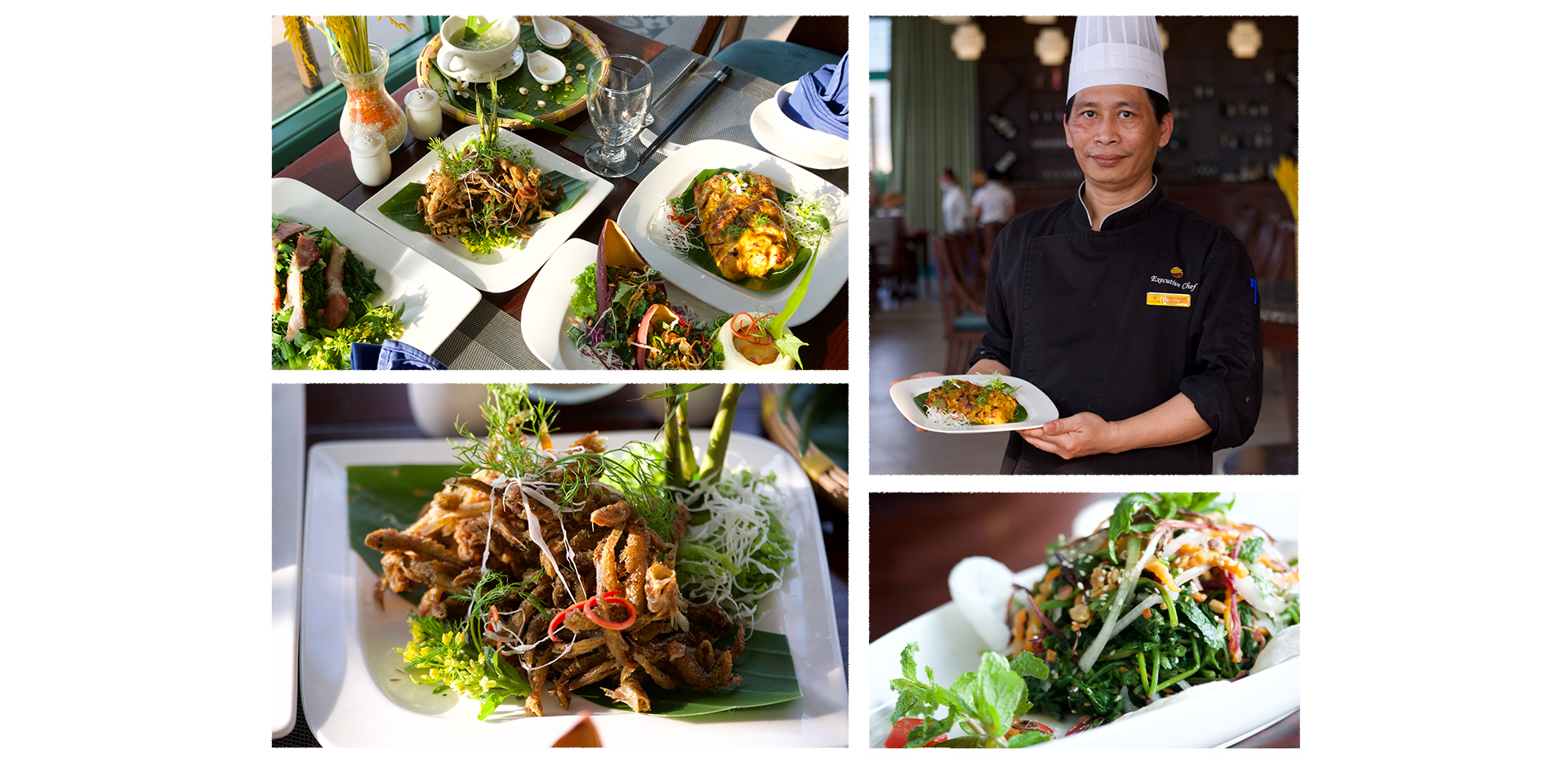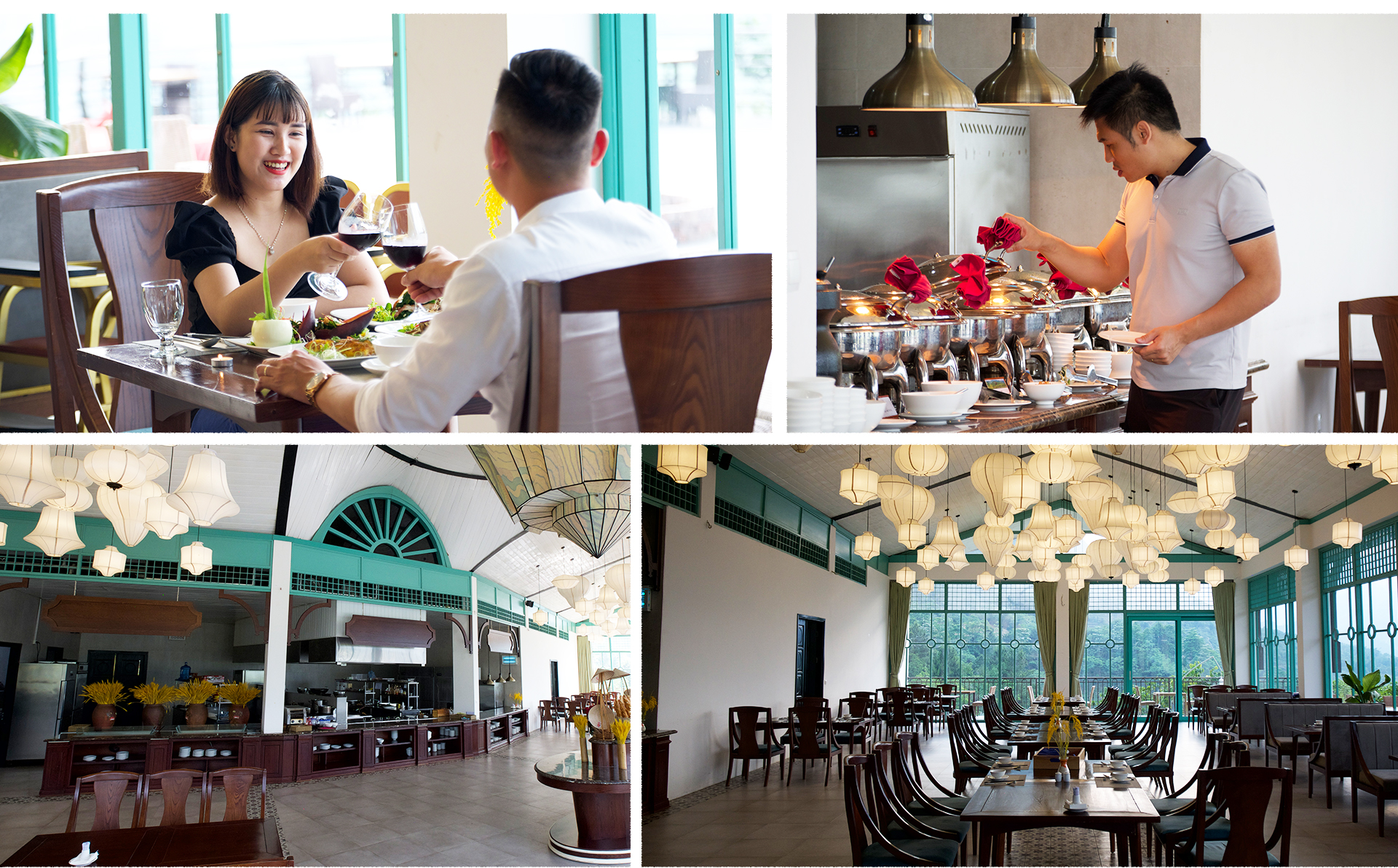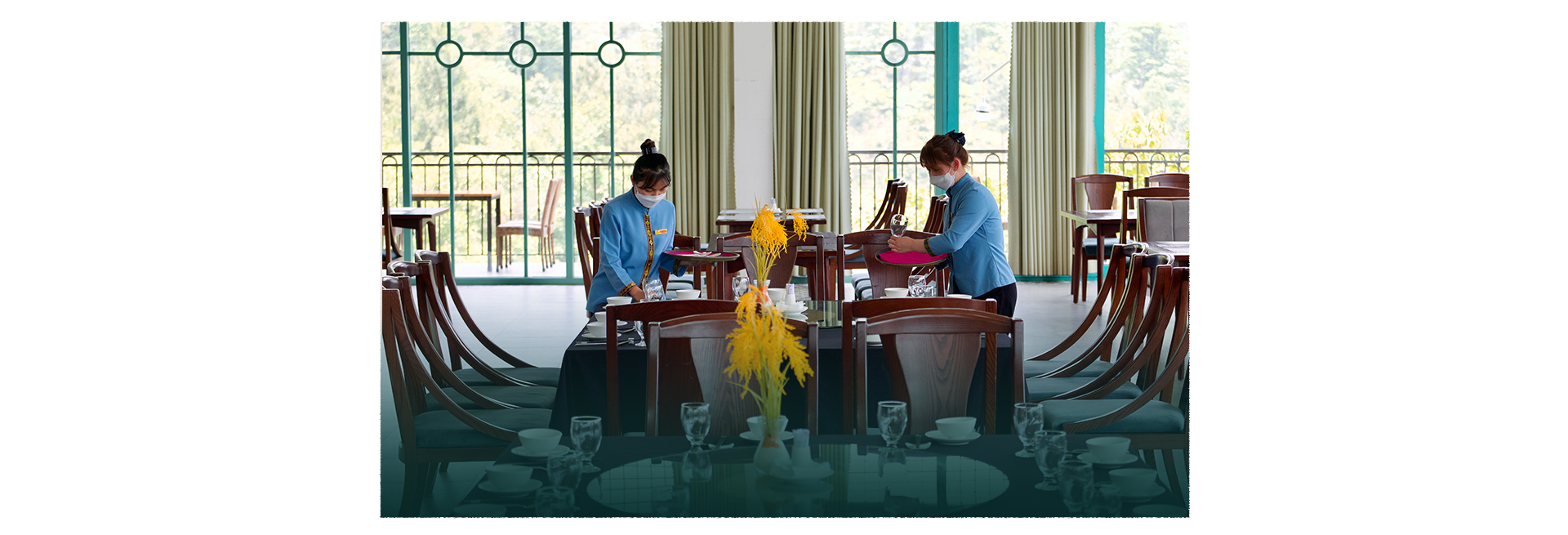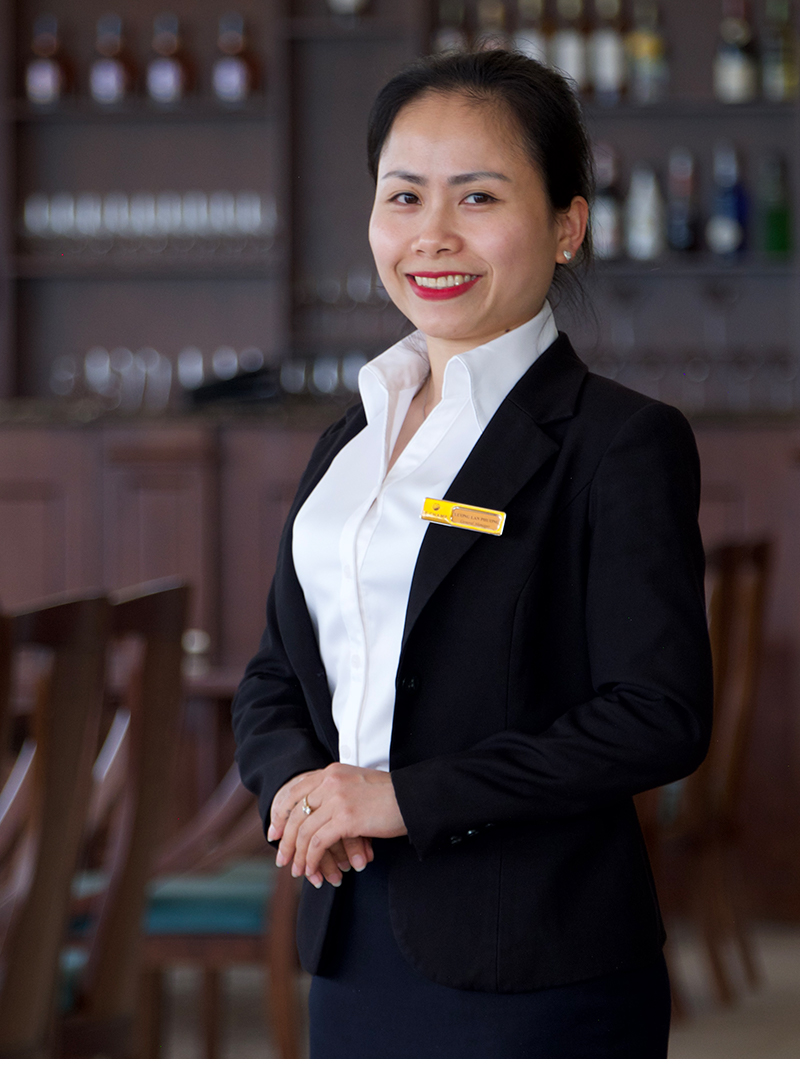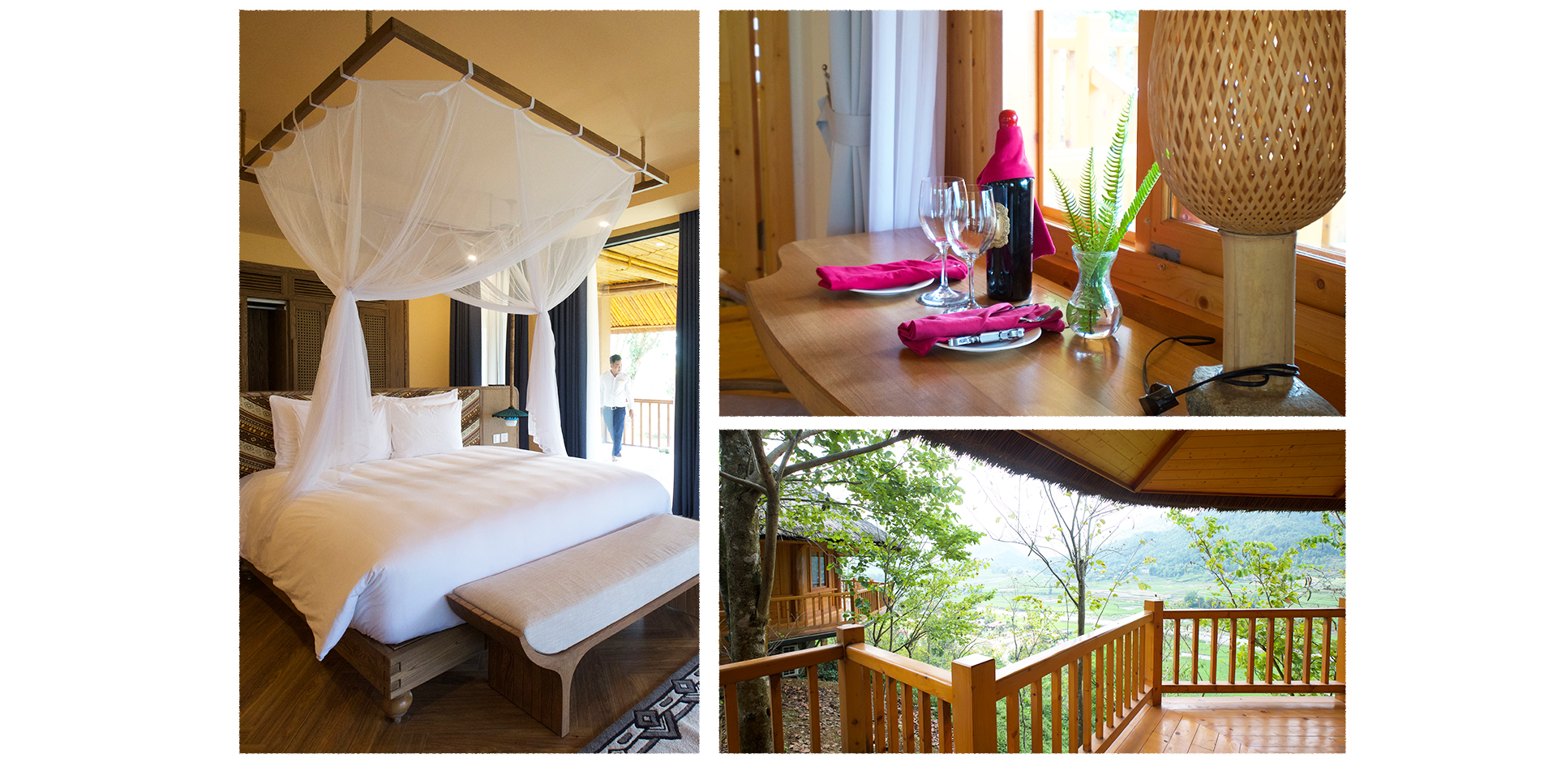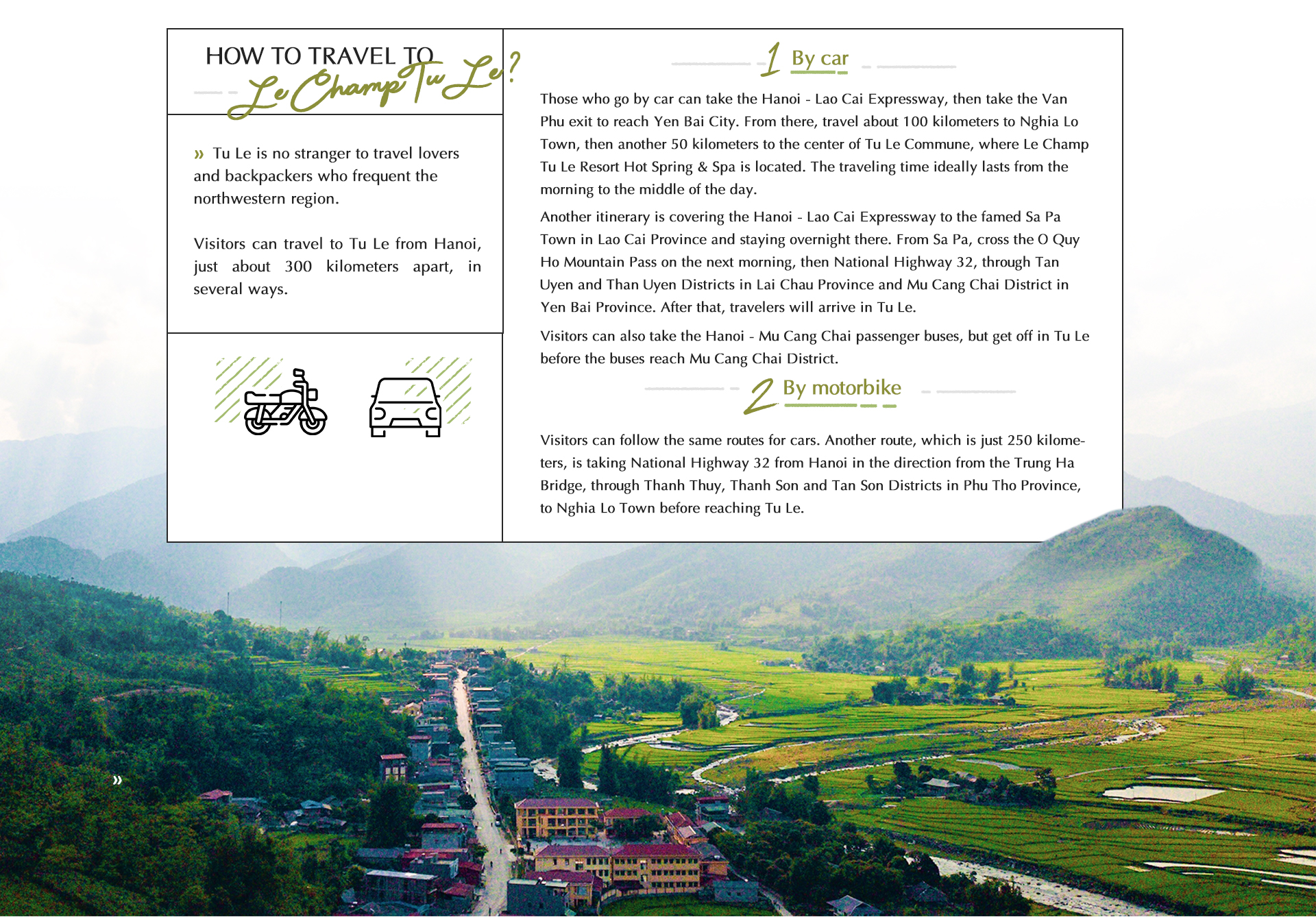Le Champ means field in French as the name of the destination is inspired by the enchanting, signature scenery in Tu Le — terraced fields.
|
|
Visitors to the area often desire to discover the magnificent nature there, such as the golden, terraced fields that glitter so brilliantly that they reflect the blue sky and white clouds above during the harvest season.Thanks to the development of tourism in Vietnam, the northwestern region with a charming pristine beauty has become a popular tourist area.
A comfortable and modern resort space that harmonizes with the local nature and is capable of meeting the aforementioned nature-admiring desire has long been what many visitors look for during their trips in Tu Le.
However, it was not until the establishment of Le Champ that the dream came true.
|
|
| An aerial view of Le Champ Tu Le Resort Hot Spring & Spa in Van Chan District, Yen Bai Province, Vietnam. Photo: Nam Tran / Tuoi Tre |
The Le Champ resort is life’s work of a man who always sets his heart on building a project that can leave visitors a lasting impression of Tu Le, said his son, Dao Duc Long.
“My family has been attached to this land for a long time,” Long said.
“My father is a very hard-working person who had always dreamed of building a remarkable project in this beautiful Tu Le land.
“That dream motivated him to put all his efforts into constructing Le Champ.”
Long, who studied finance in Australia, has engaged in managing his family’s company since his return to Vietnam after his graduation.
|
|
| Different views of Le Champ Tu Le Resort Hot Spring & Spa in Van Chan District, Yen Bai Province, Vietnam. Photo: Nam Tran / Tuoi Tre |
Initially, Long’s father planned to build a number of stilt houses with indigenous Thai architecture with a budget of tens of billions of Vietnamese dong. (VND10 billion = US$432,947)
However, the more he got involved in the project, the more passionate he became.
Long’s father ended up building Le Champ Tu Le into a resort complex of nearly 100 four-star standard rooms, at a cost of over VND150 billion ($6.5 million).
|
|
| People visit Le Champ Tu Le Resort Hot Spring & Spa in Van Chan District, Yen Bai Province, Vietnam. Photo: Nam Tran / Tuoi Tre |
The four-star rating does not necessarily evaluate the allure of Le Champ accurately, which can only be truly appreciated in person.
Every natural setting there, from lawns, flower clusters, to paving stones and the roads featuring the noise of the wind as it whistles through the pine trees, is taken care of by every centimeter, underlining the creators’ genuine love for nature.
Le Champ is also among a limited number of resorts built with an infinity swimming pool in the northwestern region.
“We’re proud of not only harmonizing the architectural landscape with the local nature but also creating jobs for the local people,” Long said.
About 110 out of 120 employees at Le Champ are native to Tu Le, who are paid around VND5 million ($216) per person per month, while the ten remaining staff members hail either from Yen Bai City, the capital of the province, or neighboring provinces, according to Long.
|
|
| A corner of Le Champ Tu Le Resort Hot Spring & Spa in Van Chan District, Yen Bai Province, Vietnam. Photo: Nam Tran / Tuoi Tre |
The resort gives young locals another job option outside the farming tradition.
“Seeing the employees’ radiant faces and their dedication to work every day tells me that we’ve made a worthwhile transformation for the future of this land,” Long added.
Besides, the operation of the resort has helped promote local products to more people and increase the value of local goods, Long said.
Particularly, Le Champ’s variety of rooms includes bungalows for VIP customers that are built with a hot tub, where guests can soak in herbs produced by the local Dao ethnic people while admiring the nature just within their view.
|
|
| Visitors soak in a hot tub at Le Champ Tu Le Resort Hot Spring & Spa in Van Chan District, Yen Bai Province, Vietnam. Photo: Nam Tran / Tuoi Tre |
|
|
Zip lining, a form of entertainment in which people can move quickly along a long thick wire attached between two points, one higher than the other while hanging from a small wheel, is another special feature at Le Champ Resort Hot Spring & Spa.
This 1,200-meter-long zip line is currently the longest of its kind in Vietnam, starting from Aeris Hill, located right on the slopes of Khau Pha Pass in Van Chan District, and ending in Mu Cang Chai District.
It offers visitors the opportunity to enjoy the panoramic view across the beautiful Tu Le Valley through many types of terrain such as terraces, rivers, and hills and experience the thrills of two slides with two levels ranging from medium to difficult.
|
|
| A woman experiences the zip line service at Le Champ Tu Le Resort Hot Spring & Spa in Van Chan District, Yen Bai Province, Vietnam. Photo: Nam Tran / Tuoi Tre |
“Take it easy, relax, enjoy our one-of-a-kind ‘flight’ across two districts,” Ly A Cua, a technical assistant at the zip line site said while carefully helping visitors get equipped with protective gear and giving them a full safety instruction.
Cua is one of 12 local employees working at the zip line site.
|
|
| Visitors experience the zip line service at Le Champ Tu Le Resort Hot Spring & Spa in Van Chan District, Yen Bai Province, Vietnam. Photo: Nam Tran / Tuoi Tre |
He said the slide has been in operation for more than a year, but it has never caused a single problem.
“People were scared at first, but after the first try, many tourists went on for two or three more times,” the employee said.
|
|
| Sunset by the Tu Le stream in Van Chan District, Yen Bai Province, Vietnam. Photo: Nam Tran / Tuoi Tre |
Though both of the departing and returning zip line courses only take three to four minutes to complete as their speed ranges between 60 and 80 kilometers per hour, the excitement before and after the trip is guaranteed to last.
Along with the zip line, visitors to Aeris Hill can also experience other adventurous journeys such as a high rope course with 32 aerial games and many challenges, including walking on ropes and balancing across fishing nets, a rock climbing course, and the fun sport zorbing – with the first pine forest zorbing range in Vietnam, boasting a length of 140 meters down nerve-wrecking slopes.
|
|
| Visitors use the hot spring service at Le Champ Tu Le Resort Hot Spring & Spa in Van Chan District, Yen Bai Province, Vietnam. Photo: Nam Tran / Tuoi Tre |
|
|
After enjoying adventurous challenges, visitors can relax and immerse themselves in the romantic scenery at the bar and restaurant located in the middle of the pine forest at Le Champ.
The cooks at Le Champ treated Tuoi Tre (Youth) newspaper correspondents to a creative salad made from a local white flower called xuyen chi,which can be easily spotted along any roads.
The creator of such a both-rustic-and-luxurious dish is Nguyen Thanh Vu, Le Champ’s sous-chef with 22 years of experience.
|
|
| Visitors have a meal at Le Champ Tu Le Resort Hot Spring & Spa in Van Chan District, Yen Bai Province, Vietnam. Photo: Nam Tran / Tuoi Tre |
Vu said that he graduated from a cooking school in September 2000. A career as a chef related to serving tourists made him move to the beautiful Tu Le Commune.
“Wherever I go, I always want to create some dishes from local ingredients,” Vu said.
“Maybe it’s not as excellent as I wanted it to be, but it certainly means a lot when visitors know that the dish can be found nowhere else and they have never eaten it before.
The xuyen chi flower salad is just one of Le Champ’s many creative dishes made by talented chefs like Vu.
|
|
| This photo shows Nguyen Thanh Vu, a sous-chef, and various dishes served at Le Champ Tu Le Resort Hot Spring & Spa in Van Chan District, Yen Bai Province, Vietnam. Photo: Nam Tran / Tuoi Tre |
While creative dishes may be interesting to Le Champ guests, the cuisine of Tu Le itself has been famous for generations thanks to a combination of indigenous ingredients.
Notably, the cuisine of the Thai people in Tu Le is the quintessence of Thai culture in the northwestern region.
In addition, Tu Le terraced fields produce rice grains with unique quality that cannot be found anywhere else, thereby boasting its famous specialties green young sticky rice flakes and five-color sticky rice.
|
|
| This photo shows the dining hall at Le Champ Tu Le Resort Hot Spring & Spa in Van Chan District, Yen Bai Province, Vietnam. Photo: Nam Tran / Tuoi Tre |
|
|
Le Champ’s mission statement follows an African proverb, which reads, “If you want to go fast, go alone, if you want to go far, go together.”
Its vision is not only a luxury resort with attractive entertainment but also a business that contributes to the general development of Tu Le.
Le Champ’s approach to reach its objectives starts with helping the local ethnic people.
|
|
| Waitresses prepare a table in the dining hall at Le Champ Tu Le Resort Hot Spring & Spa in Van Chan District, Yen Bai Province, Vietnam. Photo: Nam Tran / Tuoi Tre |
The resort is using food and ingredients grown by local people with the criteria of organic and safe farming to serve its visitors, and designating the surrounding villages as new destinations for their guests, according to young owner Long.
Visits to those villages offer guests the chance to discover the culture, cuisine, and unique identity of the Thai, Mong, and Dao residents who have lived in the vast land stretching from the valley to the top of the mountain of Tu Le for generations.
Many visitors have paid Le Champ compliments, especially for the friendly and attentive attitude from the staff of the resort.
|
|
| This photo shows Luong Lan Phuong, CEO of Le Champ Tu Le Resort Hot Spring & Spa in Van Chan District, Yen Bai Province, Vietnam. Photo: Nam Tran / Tuoi Tre |
“Despite the resort’s four-star rating and its delicate architecture, it is certainly difficult for us to achieve the same quality of amenities as that in big cities,” Luong Lan Phuong, CEO of Le Champ, humbly said. “Therefore, in order to offset that drawback, we always treat and welcome guests here with all our hearts, just as the lyrics of a song by famous musician Tran Tien, ‘A countryside man only has his heart to offer.’”
“We learned that motto from Mr. Thinh,” Phuong said, referring to Dao Xuan Thinh, founder and creator of Le Champ.
|
|
| This photo shows a bungalow at Le Champ Tu Le Resort Hot Spring & Spa in Van Chan District, Yen Bai Province, Vietnam. Photo: Nam Tran / Tuoi Tre |
“He also taught us to welcome guests as if we’re welcoming a friend to our house.
“Only in that way can we compensate for the hardships that tourists go through during their long journey to Le Champ.”
After Le Champ, Thinh and his team are yearning to extend the boundaries of what they call “resort paradises in the northwestern region” and provide visitors with new experiences in a more unique space in La Pan Tan Commune in Mu Cang Chai District.
|
|


